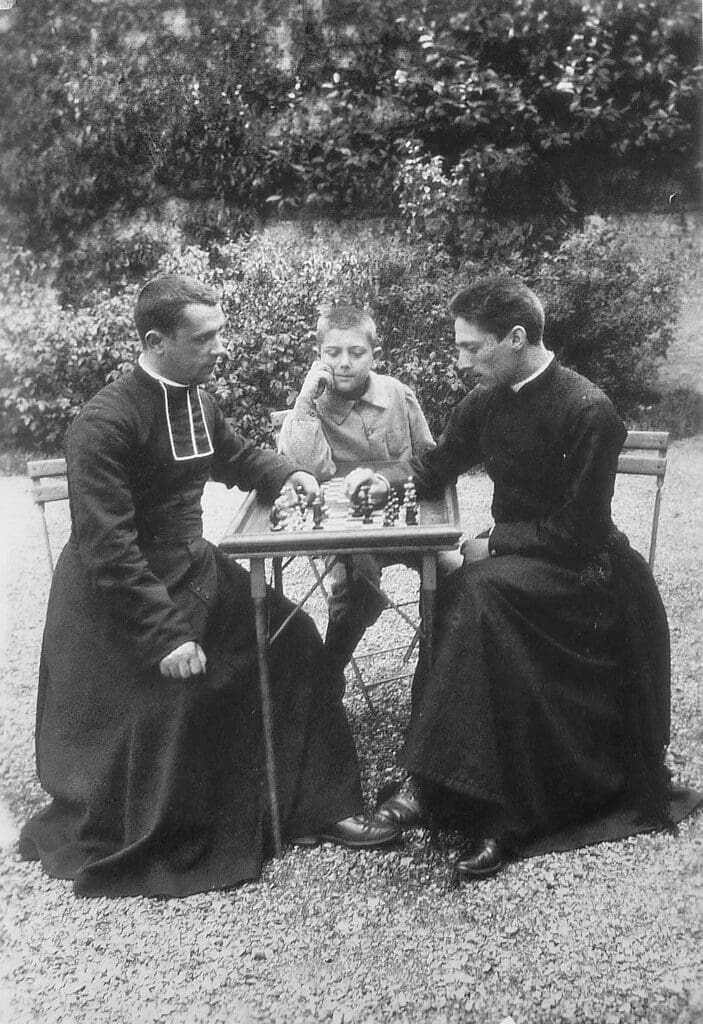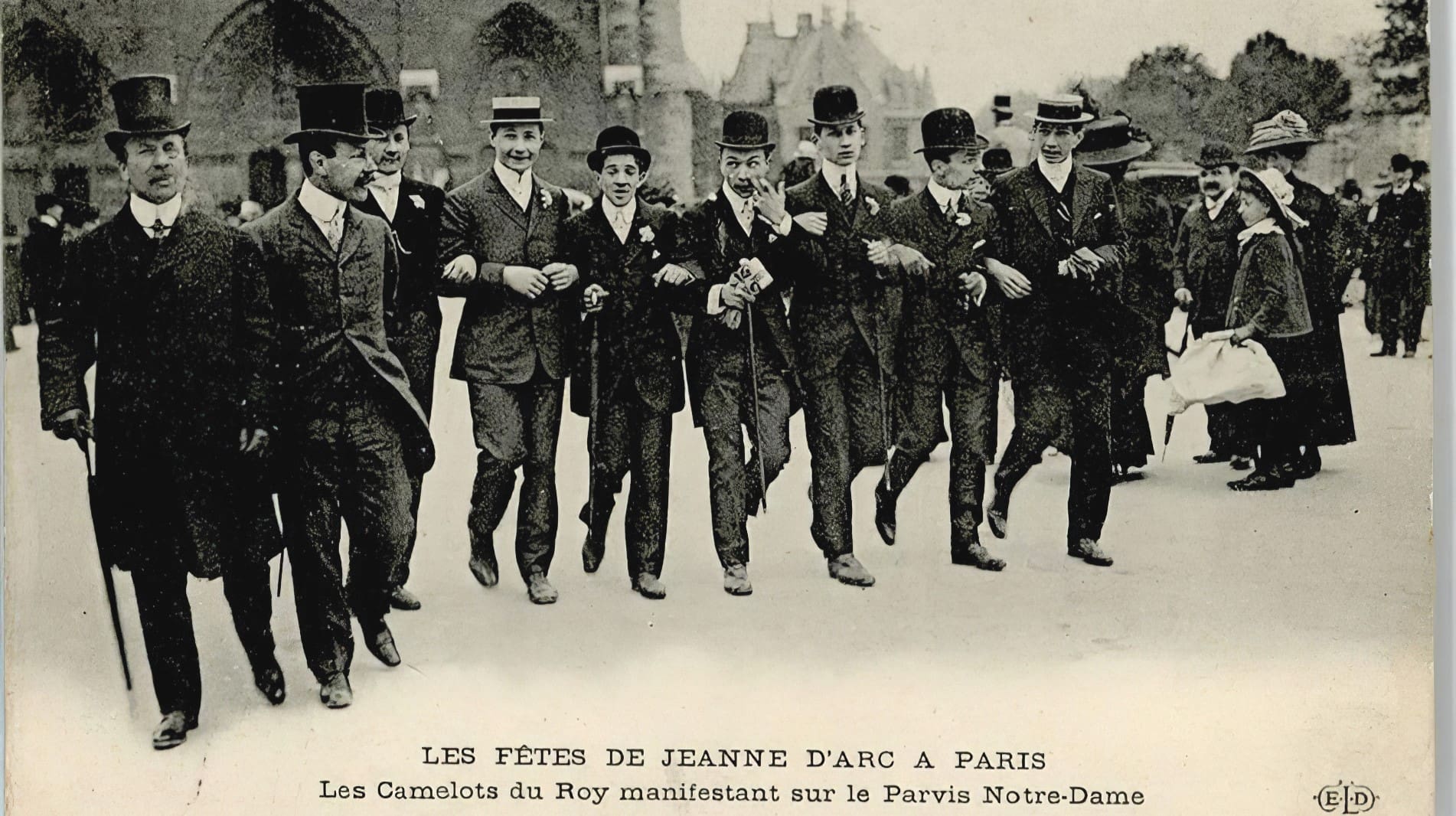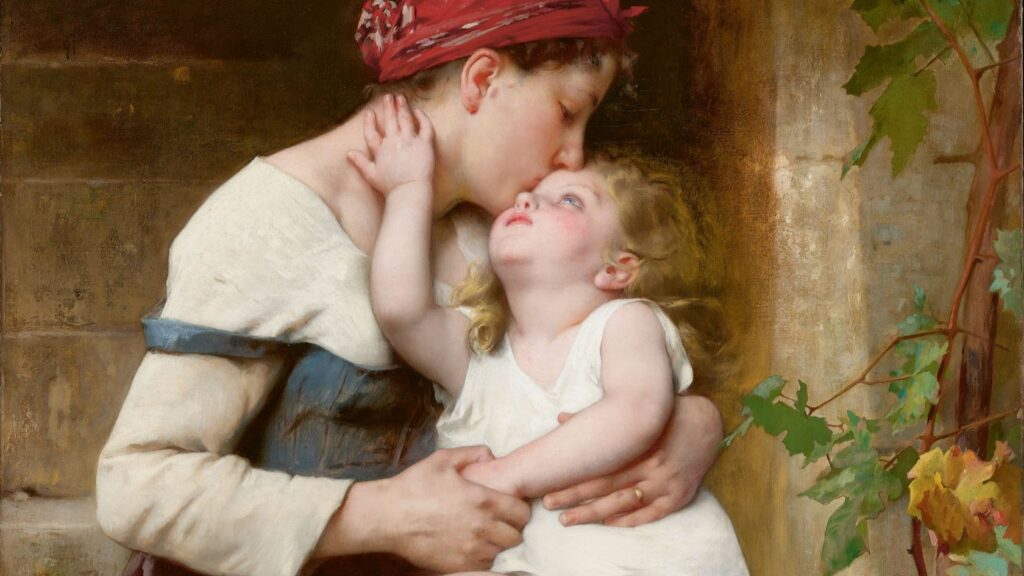This article was published in Vol. 4 No. 1 of our print edition.
The right—and, we may add, the academic left as well—is basking in its triumph over the defeat of the ‘end of history’ thesis. The end of the end of history is the new cliché. The defence of liberalism is not very fashionable these days, but there is a hit of instant gratification when we take part in an act of collective beating, reminiscent of a tribal ritual. This is low-hanging fruit. Liberalism today is only defended by ‘unimaginative and cowardly bureaucrats’, as Thomas Molnar (Tamás Molnár in Hungarian) called them in his book The Liberal Hegemony. The prophets of the ‘end of history’ celebrated liberalism as the sole victor, but when we look at this victor, it does not seem to be exactly bursting with vitality.
Of course, this is not in itself sufficient to elicit our sympathies. Whatever its merits a century or two ago, the empty promises, hypocrisies, and failures of liberalism accumulate in our minds. Our dissatisfaction with liberalism is entirely justified. Very well, so let us bury the ailing giant, the great winner of the twentieth century. But what then? Should we be moderate conservatives who merely soften the effects of an increasingly aggressive progress? Or should we be more radical, and abolish not only liberalism, but also the West? Do we need a ‘third way’ or a ‘fourth theory’, so that we can finally get rid of liberalism once and for all? Thomas Molnar’s book about French writer Georges Bernanos (1888–1948) is an excellent case study of standing at such a crossroads.
Bernanos was not a liberal, nor a democrat, not even a conservative. In his eyes, ‘conservatism’ was just a nickname for the mentality of the petit bourgeois, seeking to preserve the status quo, and willing to make compromises on vital issues. For him, ‘conservatism’ was materialism and hypocrisy, nothing more. Bernanos could hardly be called a ‘moderate conservative’ or a ‘liberal conservative’. Of course, Bernanos was not a systemic thinker or philosopher. He was a man of passion who was always willing to fight for ‘unpopular’ causes: ‘I follow truth wherever it leads me, and profess it regardless of the consequences.’1 He specifically emphasizes that he is proudly ‘dogmatic’ and represents a complete lack of compromise when it comes to fundamental principles. He applied this credo throughout his life, to his friends and allies as well as to his enemies. In short, Bernanos was a radical, spiritual, and moral absolutist who rejected all compromises, especially those of a political nature.
Bernanos was a rightist, a member of Camelots du Roi and Action Française, an admirer of the anti-Semitic Édouard Drumont and an ally of Charles Maurras. He was a committed Catholic, an elitist, a nationalist, and a monarchist, who looked back with nostalgia to the age of peasants and kings, and paid tribute to the heroism of Joan of Arc. He was a radical anti-modernist who criticized Marxism and technological totalitarianism as relentlessly as he did bourgeois capitalism and middle-of-the-road conservatism. In his youth, he fought street battles with the police and spent nights in jail.
Based on these biographical details, we would almost certainly assume that he fell into the trap of some fashionable ideology of his time. But Bernanos managed to resist what Molnar calls the ‘fascist temptation’, which alienated him from his closest allies and friends. Indeed, it was they he attacked most sharply, since they caused him the greatest personal disappointment.
It was typical of Bernanos’s generation that those who were right-wing or disillusioned with Marxism joined some kind of fascist movement. The hatred of the ‘system’, the rejection of capitalism, parliamentary democracy, the republic, and liberalism was enough to prompt those who shared these beliefs to gather around these unique, novel, revolutionary ‘right-wing’ myths.2 The bourgeois centre was regarded with almost universal opprobrium during this era, seen as symptomatic of weakness and decline. The leftists oriented themselves towards Marxism, while the rightists wanted to overcome parliamentary democracy and bourgeois capitalism with a reformed, right-wing, national modification of socialism. Left and right agreed on what had to be discarded. Molnar put it as follows:
‘It cannot be emphasized often enough that fascism was not so much a reaction against communism as against democracy. It is a too-little mentioned fact that many leaders of the fascist and National-Socialist parties were men who had previously been socialists and, in a number of cases, communists…The truth is…that Mussolini in Italy, Marcel Déat, Adrian Marquet, Laval and Doriot in France and Henri de Man in Belgium began their political careers as militants in the ranks of socialism, and renounced their loyalty only after failing to reform the Party from within on a line different from orthodox Marxism. It is no exaggeration to say that, on many points and for some time during the early 1920s, socialism and the fascist splinter groups had quite a lot in common, and that the bases of Marxist criticism of capitalism and democracy offered a platform on which extreme Right and extreme Left were able to stand together. Georges Sorel himself, the founder of Syndicalism, observed with sympathy and satisfaction the beginnings of both Leninist Russia and the Italy of Mussolini. These new, anti-capitalistic and anti-parliamentary regimes had been born from the same earth-shaking and mass-moving myth, proletarian violence.’3
Sorel, agreeing with Karl Marx, believed that the proletarian revolution would destroy both economic liberalism and bourgeois democracy, ushering in a new legal framework for state and society, and ultimately leading to a new kind of work ethic, indeed a new kind of religion.4 The myth of ‘liberating violence’ united the various forms of syndicalism, socialism, and fascism. Each trend sought to crush Western ‘decadence’, parliamentary democracy, liberalism, and capitalism. The similarity between the left-wing and right-wing versions of the revolutionary doctrines of the twentieth century is so obvious that the bigger challenge is describing what separated them.5 As the fascist Alessandro Pavolini explained in 1938: ‘Nothing irritates us so much as to be taken for pillars of order. Nothing so exasperates us as the people who come to us through fear of Communism.’6 According to Molnar, the differences between the various forms of fascism and socialism were irrelevant; what mattered was attending the funeral of bourgeois democracy and admiring the ‘ruthless efficiency’ of the Russian and German systems. The aim of fascism was to restore the rule of the elite over the masses, who had been left without spiritual or moral authority, by providing them with a new direction. This aligns with Sorel’s teaching, which rejected the illusion of progress and put its faith in a new proletarian elite that would reshape society.7

‘For Bernanos, there was no acceptable argument or excuse for cooperation with Vichy: the only acceptable attitude was unconditional resistance’
Molnar argues that if Marx had not cast such a huge shadow over Charles Fourier, Pierre-Joseph Proudhon, and all the utopian, corporatist, and nationalist thinkers of the nineteenth century, then the common roots of the fascist and national socialist parties preceding Marx would have been even more obvious. This hiatus was filled by the fascist leaders themselves, who could not help but emphasize that they merely represented another stage of development in the socialist evolution, in which they did not separate the worker from culture, family, nation, and religion, but rather united them in one grand totality.8 The innovation and success of fascism and national socialism were hidden in this ‘new synthesis’: like socialist and communist ideologies, it looked down on liberalism, parliamentarism, and bourgeois capitalism, but rid itself of the abstract nature of left-wing ideologies and placed revolutionary power on a concrete footing. According to Molnar, the originality of the fascist movements lay in the fact that they affixed the adjective ‘national’ to socialism, thus creating a mystique that, they promised, could take the place of religion in a modern, industrial, democratic world.9
These doctrines caused such ideological blindness that people were able to welcome and even celebrate the invasion of their own country by a foreign power. The pro-fascist French right applauded the occupation of their country, seeing it as the just punishment of a decadent regime.
Of course, it was not only ideology that made the French right support Vichy, and this component made Bernanos even more furious than its idealist component. The right, fearing the restlessness of the working class, became a defence league of bourgeois-conservative interests. Bernanos and Julien Benda came to the same conclusion: the French elite and the middle class had made an alliance with the enemy of their nation against the enemy of their class.10 They had put themselves under the protection of Adolf Hitler and Benito Mussolini to save themselves from the ‘rebellious slaves’. Thus, Bernanos found himself between a rock and a hard place: on one side was the Marxist left, which he rejected, and on the other was bourgeois conservatism, which he could view only with disgust.
Many Catholics made a compromise between their faith and fascism. That is why Bernanos wrote that ‘there is always a Catholic fascism, a powerful Catholic fascist public opinion. When we mention it, we are immediately accused of hurting the Church. What has hurt the Church is that fascists have spoken in it too long and on the tone of authority. In our turn, we are quite resolved to raise our voice, not to outshout them, but to be heard everywhere, even by Rome.’11
Although everything pointed to Bernanos, as a Catholic right-winger, also falling victim to the ‘fascist temptation’, this never happened. He ‘was never attracted, however, by either socialism or that strange mixture which, in Germany, was called National Socialism and which in France finally found expression in the révolution nationale under Vichy.’12 Quite the contrary. He mercilessly attacked even members of the clergy who had compromised their principles: those who blessed Mussolini’s troops when the latter launched his campaign in Abyssinia, or who averted their gaze when Franco’s regime launched the purges; and above all, those conservatives who supported the Vichy regime out of fear of losing their privileges. As Molnar writes, ‘it is not the Jews but the conservatives, not the socialists but the Spanish clergy, not Blum but Franco who are the targets of his attack’.13
Bernanos lived in Mallorca during the Spanish Civil War (1936–1939), and one of his sons joined the Spanish fascist party Falange. Bernanos had high hopes for the fight, which he considered a just war against ungodly forces. He quickly became disillusioned, however. As he wrote: ‘Now the hyenas appear on the scene. What follows is not for people like you and me…A counter-revolution is not at all what the idiots think it is, back in France.14…If six thousand priests were massacred by the Spanish Reds, there were assassinated as many peasants in Majorca alone. Christians cannot rest until light is shed on the acts of priests who encouraged such killings…No justification for the alliance with Franco can be accepted.’15 As he noted in his memoirs: ‘The Spanish experience was, perhaps, the capital event of my life… It gave me a chance to observe to what depth the totalitarian poison had corrupted the conscience of Catholics and even that of priests.’16
‘The lesson of the fascist temptation is that it is not worth building temples for the pagan gods of modernity’
Bernanos’s moral position remained unchanged, as did the pillars to which he clung. He was always in solidarity with his own people, and he directed his ire against the elite, who ‘hated the republic more than they loved France’.17 For the collaborators, it was more important to harm their political enemies than to fight against an occupying power. Bernanos was outraged by the middle class, which first gave up its national independence, then surrendered to a pro-fascist elite to protect themselves from social upheaval. He felt only contempt for what he called the ‘spirit of Munich’, and a deep hatred for Philippe Pétain and Vichy. He did not curse Hitler and Mussolini, but the collaborators. He unconditionally supported Charles de Gaulle and the Resistance, even if he remained pessimistic about the post-war regime, and had no fond illusions about the future. For Bernanos, there was no acceptable argument or excuse for cooperation with Vichy: the only acceptable attitude was unconditional resistance.
According to Molnar, it is no exaggeration to call Bernanos the conscience of the nation during the war years. Bernanos believed that even victory could not have justified the handover of Jewish refugees to the Germans, or the handover of Spanish Republican refugees to Franco. In one of his energetic outbursts, he demanded that the Gestapo release Georges Mandel, a former minister of the interior: ‘If your masters do not give us back Mandel alive, you will have to pay such a high price for this Jewish blood that it will astound the world. Every drop of that Jewish blood is more precious to us than all the purple of a fascist cardinal’s cloak—you better take note of this, Admirals, Marshals, Excellences, Eminences and Reverend Fathers!’18
There is an interesting kinship in the thinking of Bernanos and Simone Weil, and their paths took parallel courses. Like Bernanos, Weil was outraged by the cruelty of her comrades during the Spanish Civil War. The sadistic execution of Catholic priests horrified Weil as much as the nocturnal purges of the Francoists did Bernanos. As Weil herself pointed out in her letter to Bernanos: ‘What does it matter to me that you are a royalist, a disciple of Drumont? You are incomparably closer to me than my comrades from the Aragon militia—the comrades whom I used to love.’19
Bernanos never abandoned his religious beliefs, nor his commitment to his people. He did not consider himself to be of the right or left, and expressed his loyalty only to God and the French people. As two of his students emphasized about him: ‘There are only two forces left in the country: Jesus Christ and the people. Their alliance will be the salvation of France.’20 Though he often appears to have been an insufferable individual, who quarrelled with everyone, his Catholic faith and love for his people remained unbroken and unchanged throughout his life.
After the war, Bernanos was certain that the threat of totalitarianism had not passed. He thought of communism and National Socialism as merely variants and manifestations of totalitarianism, just like mass democracy. He feared the all-absorbing state that swallows up the individual. In his later years, he recalls his earlier thinking as follows: ‘When I was fifteen years old [1903], I and my friends were combatting individualism. What bad luck we had! Individualism was dead! Every nation of Europe already had, deep in its entrails, a small totalitarian state, fully formed…And Liberalism, oh Lord! What sticks we used to caress its backside! Alas! It no longer noticed our blows. Watched over by a few academicians in uniform, Liberalism was waiting, in a state of agony, the hour of death which the first cannon shot of the war was to announce.’21
What made Bernanos immune to the fascist temptation, the promise of radical ideologies and political revolutions? First, Bernanos had what right-wing traitors lacked: caritas and pietas. In all likelihood, his Christian faith played a decisive role in his ability to say no to evil in its many forms. Second, his country was always more important to him than any ideology or political cause, and he always stood on the side of the ‘plain people’, the ordinary French, against the traitorous elites.22 Throughout, he remained uncompromising and radical, rejecting liberalism, modernity, and mass democracy, and at the same time saying no to the false ideologies of the left and right which promised inner-worldly salvation.
The right-wing intellectual thinks about the concept of order with as much amorous longing as the progressive intellectual thinks about change.23 Of course, in terms of their imagined end result, there is not that much difference between the left-wing and right-wing ideas of utopia, since they all start from some image of order. Indeed, in this, utopian and non-utopian thinking do not differ: all political thinking postulates some kind of order. (Perhaps the postmodern vision of the carnival is an exception to this rule.) What distinguishes the utopian from the non-utopian is that the former regards order as the final destination, a state in which everything is settled and there are no fundamental conflicts. This idea tempts those on the right as well as the left. While the left wishes to be freed forever from oppression and inequality, the right hopes to be free of the disorderly left and egalitarianism, and restore some lost holy hierarchy and order.
While the left projects the order imagined as the final destination into the distant future, the right tries to return to the past in some form, either by restoring a previous state, or by returning to the ‘pure source’ that preceded the deterioration, and starting again from scratch.24 The order of the left is egalitarian, that of the right is hierarchical and caste-like, but no essential change or deviation can be imagined once that order has been achieved. In terms of their ultimate vision, both strive for a closed state of things, and both consider the complete destruction and upheaval of the existing order to be permissible and even necessary. And just like the left, the right also has a romantic, heroic vision of the ‘nonconformist’ individual, the warrior who stands alone against the modern world, collectivism, bureaucracy, democracy, commercialism, and mass culture. This lyrical tone can be found throughout the literature of the revolutionary right, from Friedrich Nietzsche to Ernst Jünger, and in Molnar’s view, Bernanos’s tone was no exception:
‘Partly as a result of a forced and prolonged political passivity, the conservative developed a feeling of restriction. It seemed to him that the world was losing a certain quality of adventurousness, of risk, hazard, and savagery, and that, just as nature is tamed and made uniform by industrialization, so is the proud individual, the “nonconformist”,’ by democracy, commercialism, and mass culture. In the writings of many, from Nietzsche to Ernst Juenger, in those of Bemanos, Montherlant, Evelyn Waugh, and C. S. Lewis, the tone is that of the last lonely man, engaged in a losing battle with the all-engulfing Collectivity, Party, Bureaucracy, or simply, the Modern World. The figure of the last solitary masculine specimen, hunter, warrior, and lover of women is outlined with particular clarity in the novels and plays of Juenger and Montherlant; the whole tone of conservative brooding is sensed through the mysterious, twilight atmosphere created by the German (in The Marble Cliff), or the last passionate, angry denunciation by the Frenchman (Le Maitre de Santiago). M. Paul Serant, in his book on a group of writers he calls “romantic fascists” (Drieu La Rochelle, Robert Brasillach, L. F. Celine et al.) says that they are “characterized by a lyric quality, and their political attitude is indistinguishable from a search for a new style of collective life, for the poetization of the political and social order.”’25
Étienne Borne identified the set of values of fascism as follows: ‘the contempt for the trivial and the routine, the search for grandeur, the refusal of a mendacious idealism which hides a comfortable and prosperous egoism under universal morality. An effort to elaborate an idea of order by tearing it away from bourgeois compromises; finally, the certainty that there are reasons to live which are worth more than life itself.’26 The image of the romantic hero facing the world differs in its details, but the motif is important in the imaginations of both left and right.
Ultimately, the utopian visions of both the left and the right want a ‘new man’, but this can only be a grotesque caricature of the Christian ‘new man’. Just as the homo sovieticus did not come into being, neither did the ‘fascist man’. None of these ideologies could separate the real people from their existing loyalties. People did not coalesce into a single, transnational class, nor did they merge in some kind of national, socialist ‘totality’ or collectivity either. Ideology may be able to successfully shape politics—at least for a while—but so far it has not managed to permanently transform people. The right-wing and left-wing ideologies of modernity were unable to take the place of religion. They remained myths.
The lessons from Molnar’s book about Bernanos remain fresh today. The ‘fascist temptation’ has not disappeared, but only appears in new forms. Molnar’s book is not relevant in the sense that the quivering supporters of the status quo and liberal intellectuals mean when they cry that ‘fascism’ is ‘returning’ in an unchanged guise. Bernanos’s prophecy is interesting because there are still today, and probably always will be, movements that call for a radical break with the past, and announce a return to the ‘pure source’, with the creation of an imagined future order or return to a past order and hierarchy that has not yet been corrupted. They promise a new (or perhaps even old) order and society, and a new type of person, who will be free from the imperfections, asymmetries, and disorder of the present world. There will be ideologues who promise to ‘settle the score’ once and for all, to create a new paradise, be it utopian or nihilistic. The danger of what Molnar called ‘metaphysical impatience’ goes just as much for the revolutions of the right as of the left.27 The imperfect, incomplete character of the existing order is unbearable for the revolutionary.
Bernanos regarded those on the French right who collaborated with Vichy as traitors: he believed that the right had betrayed its country for its class interests, and sacrificed the French people on the altar of the image of order. In Bernanos’s view, this would have been unforgivable even had they been victorious, but as it is, what did they gain by it? As Molnar writes, ‘Fascism, powerless in practice, remained a myth, and as such, demanded a bloody sacrifice for its unattainable deity’.28 The lesson of the fascist temptation is that it is not worth building temples for the pagan gods of modernity.
Translated by Thomas Sneddon
NOTES
1 Thomas Molnar, Bernanos: His Political Thought and Prophecy (Kindle edition, Routledge, 1996,), 36.
2 German nationalist conservatives—especially those sympathetic to National Socialism—even preferred communism to what they saw as a weak, degenerate Weimar Republic. Everyone wanted to get rid of parties and parliamentarism. Thomas Molnar, The Decline of the Intellectual (Routledge, 2017), 190.
3 Molnar, Bernanos, 122–123.
4 For more on the interpretation of modern ideologies as political religions, see: Eric Voegelin, ‘The Political Religions’, in: Modernity without Restraint. The Political Religions; The New Science of Politics; and Science, Politics and Gnosticism: The Collected Works of Eric Voegelin, Vol. 5. (University of Missouri Press, 2000), 19–73.
5 Ludwig v. Mises, Omnipotent Government (Yale University Press, 1944), 186–187. See also Erik von Kuehnelt-Leddihn, Leftism Revisited: From de Sade and Marx to Hitler and Pol Pot (Regnery Gateway, 1990).
6 Molnar, Bernanos, 123.
7 Molnar, Bernanos, 131–132.
8 Molnar, The Decline of the Intellectual, 188.
9 Molnar, The Decline of the Intellectual, 198.
10 Molnar, Bernanos, 138.
11 Molnar, Bernanos, 135–136.
12 Molnar, Bernanos, 96.
13 Molnar, Bernanos, 134–135.
14 Molnar, Bernanos, 148.
15 Molnar, Bernanos, 152.
16 Molnar, Bernanos, 160.
17 Molnar, Bernanos, 162.
18 Molnar, Bernanos, 187–188.
19 Molnar, Bernanos, 158.
20 Molnar, Bernanos, 51.
21 Molnar, Bernanos, 75–76.
22 Cf. Kolnai Aurel, ‘The Meaning of the “Common Man”’, in: Privilege and Liberty and Other Essays in Political Philosophy (Lexington Books, 1999), 63–104. (Note in particular the difference between the ’Plain Man’ and the ’Common Man’, 83–91.)
23 Molnar, The Decline of the Intellectual, 173.
24 ‘Here I merely wish to indicate the degree to which this desire to return to the ‘origin’, the source, is contrary to the concept of tradition. Such ‘returns’ are considered to be one of the primary elements of reactionary thinking, but de Maistre considered them ridiculous: in his opinion, any attempt to ‘turn the clock back’ on the French Revolution would be like trying to eliminate Lake Geneva by bottling its water to the last drop.’ Cited in: Molnar, The Decline of the Intellectual, 160.
25 Molnar, The Decline of the Intellectual, 181–182.
26 Molnar, Bernanos, 127.
27 Molnar, The Counter-Revolution (Funk & Wagnalls, 1969). This is too tangential to go into at length, but both left-wing and right-wing revolutionary tendencies also agree in typically envisioning a post-Christian era, sometimes with a degree of concern, but more often with enthusiasm. For more on this, see: Thomas Molnar, The Pagan Temptation (Eerdmans, 1987).
28 Molnar, The Decline of the Intellectual, 198.
Related articles:







